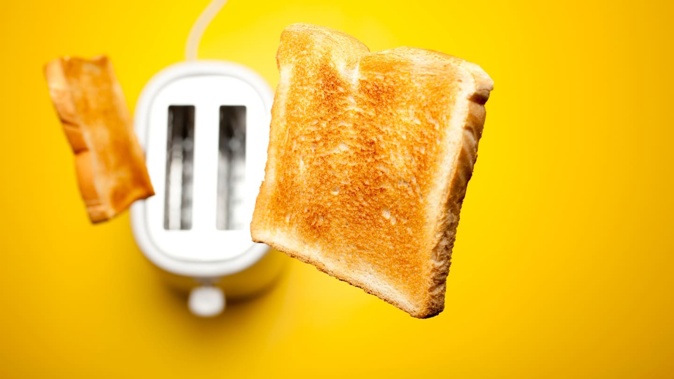

New Zealand’s first not-for-profit power company has changed the lives of more than 150 households and provided cheap power to hundreds more.
Toast Electric is a social retailer that provides competitive pricing to regular customers and uses the surplus from those households to help those suffering energy hardship.
Since its launch in 2022, 650 households in the Wellington and Horowhenua regions have signed up - which means the bills are subsidised for 150 who would otherwise be going without.
Similar models throughout New Zealand include kaupapa Māori power company Nau Mai Rā and Good Power in the Waikato.
Like Toast Electric, Nau Mai Rā and Good Power put the profits from regular customers into helping those in hardship.
Ezra Hirawani, from Nau Mai Rā, said the retailer was founded in 2019 to help families like his own who have lived with energy hardship.
“We are the people we serve. We have been there and a portion of my family is still there,” Hirawani said.
Nau Mai Rā established a “whānau fund” so regular customers could give back through their bill.
 Ezra Hirawani wants to end energy hardship in New Zealand through the power retailer Nau Mai Rā. Photo / Supplied
Ezra Hirawani wants to end energy hardship in New Zealand through the power retailer Nau Mai Rā. Photo / Supplied
“If someone needs help and goes through the whānau fund we can help them out with their power, we can arrange food parcels and we can help through partners like St Vincent de Paul and Salvation Army,” Hirawani said.
Nau Mai Rā's goal was to help people get on their feet and give them guidance and support through a network of “Aunties”.
Like Toast, Nau Mai Rā doesn’t charge disconnection fees and doesn’t do credit checks before signing up new customers.
“We take anyone,” Hirawani said.
“Our goal isn’t to be a big player but it’s to play a role.”
Over at Toast Electric, Fair Energy Manager Phil Squire said it was good to see a rise in social retailing like Nau Mai Rā and Good Power where organisations were focused on providing electricity as an essential resource.
He said there was “a large amount of money flowing through the electricity industry”.
“As a not-for-profit we are 100% focused on removing energy hardship.”
“Like other social retailers, we provide competitive pricing for our “regular” customers and use any surpluses to support others.”
Those in need are referred to Toast Electric through the Sustainability Trust’s Energy Wellbeing programme.
The surplus from every four regular Toast Electric customers goes to support one household that’s struggling to afford its power bill.
In addition to having their household energy bill subsidised families identified also have an in-home assessment to help warm up their homes.
“We also provide them with things like heaters, curtains, LEDs, draught-stopping, insulation and heat pumps through Warmer Kiwi Homes,” Squire told the Herald.
“We’ll also check the house complies with the Government’s Healthy Homes Standards and advocate to the landlords if there are failings.”
Over winter, prices are capped giving customers in hardship certainty over their power bill.
Feedback from households who had been going without food or other essentials to pay their power bill or who had been previously disconnected showed the worth of Toast Electric, Squire said.
 Phil Squire from Toast Electric said power was an essential service that should not be a privilege. Photo / Supplied
Phil Squire from Toast Electric said power was an essential service that should not be a privilege. Photo / Supplied
There were positive health outcomes, lower anxiety and stress about looming bills and improved family connections because of less limited access to power.
In a recent survey by researcher Kimberly O’Sullivan at Otago University, Energy Wellbeing customers with Toast Electric said they “enjoyed life more”, “felt less stressed,” and “could spend more on children’s activities” because of of the programme.
Others said the programme had them “in tears” because of the difference having better access to power without “huge bills”.
Many said the health outcomes were noticeable.
“The heating, it transformed our winter. I reckon we weren’t as sick, I think the children weren’t as sick last year,” one said.
Another said, “being able to keep the house warmer has meant not needing my reliever inhaler as much.”
Squire said an overwhelming message was the “high trust” paying customers had in Toast Electric.
Some of those signed up had suffered anxiety and stress from threats of disconnection or from going without power.
One of the families signed up to the Wellbeing Programme through the Wellington City Mission had previously been disconnected and had gone without power for four months before asking for help.
Kirsty Wynn is an Auckland-based journalist with more than 20 years experience in New Zealand newsrooms. She has covered everything from crime and social issues to the property market and consumer affairs.
Take your Radio, Podcasts and Music with you









